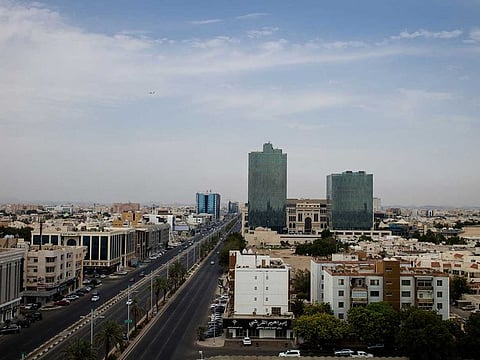Saudi police recover car stolen after engine left running
Thief caught on CCTV stealing car, parked in front of a Jeddah supermarket

Abu Dhabi: Jeddah police have recovered a car stolen as it was parked in front of a Jeddah supermarket with its engine running, police said.
Major Mohamed Al Ghamdi, spokesperson of Mecca Police, said the thief, a Yemeni man in his 40s, who was caught on CCTV stealing the car, was apprehended in record time.
“The thief drove the car away as the owner left its engine running, to run a short errand,” Al Ghamdi said.
Police warned every year, a great number of cars are stolen when the motor is left running. The thief’s job has been made easy: all he or she needs to do is sit down and drive.“Whenever you leave your car running and unattended, you need to ask yourself whether the few minutes of convenience merits the risk of having your car stolen,” police said.
An average of 38 vehicles are stolen every day in the Kingdom but police only recover less than half of them, according to official figures released by the Ministry of Interior in 2017.
Informed sources said the danger of this kind of crime is not in the theft itself but the vehicles might be used to commit more serious crimes, especially terrorist activities.
They noted a remarkable increase in car thefts during the past few years, making it the most common crime in the Kingdom.
According to the Interior Ministry’s report for 2016, as many as 1,134 cars were stolen in January alone. The report said most of the car thefts took place in the major cities of Riyadh, Jeddah, Makkah, Madinah, Tabuk and Dammam.
The thieves usually change the car’s outlook and its plate number so as to sell it on, or dismantle it to sell parts.
Other thieves use stolen cars for drifting and joy riding, but most of the stolen cars are used by terrorists to carry out their operations.
Some observers attributed the rise in car thefts to the weak presence of security patrols on the streets while others attributed it to the slackness of the police in dealing seriously with reports of car thefts.
A third category of observers blamed the rising number of thefts to car owners themselves who do not immediately report the thefts because they are not sure the police will act seriously.
A study, issued by Prince Naif Arab University for Security Sciences in January 2016, blamed drifting, unemployment and the negligence by car owners themselves for the rising number of car thefts in Riyadh. It said a complete lack of, or weak, monitoring of the spare parts shops might also be a reason behind the rising number of car thefts.
The study recommended the installing and urged concerned security authorities to use modern technology in pursuing stolen cars.
In December, Riyadh Police apprehended a five-member gang who used to steal the parts of luxury cars.
The gang’s main line of business was to steel brand-new lease vehicle, dismantle them and sell their parts, police said.
Sign up for the Daily Briefing
Get the latest news and updates straight to your inbox







